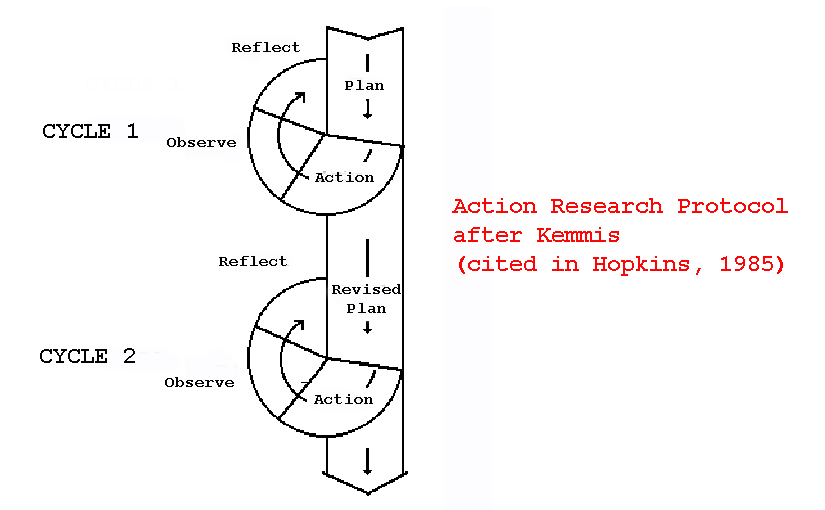Image: Action Research Protocol after Kemmis (cited in Hopkins, 1985)
Key text: Carr, W. & Kemmis, S. (1986), Becoming Critical: education, knowledge and action research
Stephen Kemmis has developed a simple model of the cyclical nature of the typical action research process.
Each cycle has four steps: plan, act, observe, reflect. Carr and Kemmis (1986) describe action research as:
- the improvement of practice
- the improvement of the understanding of practice
- the improvement of the situation in which the practice takes place
The notion of improvement can be problematic when viewed from the outside. One person’s improvement can be another person’s deterioration. It depends on the beliefs and values underpinning the individual’s perspective. Paradoxically, however, this uncertainty is perhaps the one truth of professional practice. Practice is contingent upon the practitioners’ intentions, values and beliefs and the situation in which those elements are given form.
Reference: http://www.edu.plymouth.ac.uk/resined/actionresearch/arhome.htm
See more on PAR and AR by Valsa Koshy. Action research for improving practice: A practical guide. Sage, 2005. A useful chapter is available here.

